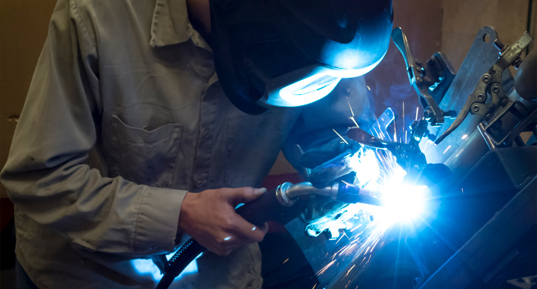Vidalia District Files Development Paperwork
Jul 22, 2015
Concordia Economic Development Executive Director Heather Malone said a second proposal on the Vidalia Square on Carter project was filed with the State Bond Commission today.
The proposal for the multi-use project will be filed under the name of the Carter Street No. 1 Economic Development District, which entered into a cooperative agreement with the town last week. The agreement outlines how projects within the economic district will be governed and operated.
Aldermen serve as the governing body for the district.
Mayor Hyram Copeland said the paperwork is being filed with the Bond Commission in time for the August agenda.
The economic district, rather than the town, is now seeking Bond Commission approval to borrow $7 million to purchase 65 acres of property along U.S. 65/425 on the west side of Vidalia across from Wal-Mart for a mixed-use development and to finance infrastructure development of the land.
In a confidential legal memo from the Attorney General’s office leaked by State Treasurer John Kennedy, who chairs the State Bond Commission, the AG’s office stated a “legal impediment” prevented the town from pursuing the economic development project because the project did not appear to be for “a public purpose.”
However an opinion issued by the AG’s office on July 16 approving a Monroe project appears to mirror the proposal filed through the Carter Street No. 1 Economic Development District.
In an opinion released to Monroe Mayor Jamie Mayo, the AG opines that the “I-20 Economic Development District may enter into a cooperative endeavor agreement to provide funds to Delta Community College to assist in the construction of an Advanced Training Center to be located within the District provided the District receives at least equivalent value in exchange for its contribution.”
Mayo asked the AG if the I-20 Economic District, which the City of Monroe created, could legally provide funds to Delta Community College to assist in the construction of a training center located within the district’s geographical boundaries. Mayo maintained that the project qualified as economic development in part because the center “would serve as a one stop shop for companies wanting to move or expand within the District.”
Assistant Attorney General Michael J. Vallan wrote that economic development projects “shall include, without limitation, public works and infrastructure projects to assist the following industries within the meaning of Article VI, Section 21 of the Louisiana Constitution:
“(1) Industrial, manufacturing, and other related industries.
“(2) Housing and related industries.
“(3) Hotel, motel, conference facilities, and related industries.
“(4) Commercial, retail, and related industries.
“(5) Amusement, places of entertainment, theme parks, and any other tourist-related industry.
“(6) Transportation-related industries.
“(7) Hospital, medical, health, nursery care, nursing care, clinical, ambulance, laboratory, and related industries.
“(8) Any other industry determined by the local governmental subdivision or issuer of revenue bonds, as appropriate, whose assistance will result in economic development.”
Malone said she was pleased with the opinion “as it relates to the legality of a local political subdivision to issue revenue bonds in order to finance economic development projects. This official opinion supports all of the development components of the Square on Carter project.
“It is clear to see, after reading this opinion, that the Square on Carter project is a legally viable project according to the State of Louisiana. I hope this opinion satisfies any questions the State Bond Commission had concerning the legal and public purpose of this project.”

New Vidalia hotel set to be complete early 2018
Sep 17, 2017
VIDALIA - After delays due to weather, the Vidalia Riverfront TownePlace Suites is projected to be complete by late January or Early February. Construction on…...Read More
Chamber Hears Goals for Economic Partnership
Aug 10, 2016
Vidalia, LA -- Economic development was the topic of conversation at the Concordia Chamber of Commerce’s monthly luncheon Tuesday with past accomplishments and future goals…...Read More
- About Us
- Site Selection
- Regional Data
- Tourism







